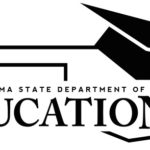PHOENIX (ABP) — The Arizona Supreme Court March 25 delivered the latest in a string of blows to the movement to provide tax funding for tuition at private and religious schools.
A unanimous five-member court said a plain reading of a provision in the Arizona Constitution outlaws two small programs that provided publicly funded vouchers that students could use to attend private and parochial schools. One program was for students with disabilities; another served children in foster care.
“The voucher programs appear to be a well-intentioned effort to assist two distinct student populations with special needs. But we are bound by our constitution,” wrote Justice Michael Ryan in the court’s Cain v. Horne opinion. “There may well be ways of providing aid to these student populations without violating the constitution. But, absent a constitutional amendment, because the Aid Clause does not permit appropriations of public money to private and sectarian schools, the voucher programs violate Article 9, Section 10 of the Arizona Constitution.”
Constitutional amendment to undo the ban
The decision affects about 475 students, who will continue to receive the vouchers until the end of this school year. Unless Arizona voters approve a constitutional amendment to undo the ban on aid to religious institutions, the programs will end.
Attorneys for the state had argued that the Arizona Constitution provision in question — which bans any public appropriation “in aid of any church, or private or sectarian school, or any public service corporation” — should be interpreted the way that the federal Supreme Court has interpreted the religion clauses of the First Amendment. In 2002, a divided court OK'd an Ohio school-voucher program, saying indirect aid to religious schools did not violate the Constitution’s ban on government support for religion.
But the Arizona court agreed with attorneys for religious-liberty and public-school advocates, saying the state’s charter provides more specific guidance than the federal Constitution on indirect government aid to religious institutions.
Parents with children in the program intervened in the case on its behalf. One of them, Andrea Weck, told the Arizona Republic that the scholarships had enabled her to enroll her autistic daughter in a small private school for children with learning disabilities. "The opportunity created by the scholarship program changed Lexie from the inside out," Weck said.
Vouchers have proven to be unpopular
Sign up for our weekly edition and get all our headlines in your inbox on Thursdays
Voucher programs — once hailed by education reformers as a way to rescue kids in failing public-school systems and encourage competition that would improve such schools — have proven unpopular both at the ballot box and in state courts. Voters in California and Utah recently rebuffed statewide voucher programs, and the highest courts in Maine and Florida have cited similar provisions of their states’ charters to prohibit vouchers for religious schools. In early March, Congress voted to discontinue funding for an experimental voucher program in the District of Columbia.
Public-school advocates as well as supporters of strong church-state separation have long opposed voucher programs that include religious schools, saying they violate the spirit of the First Amendment.
Many other states have constitutional provisions similar to Arizona’s. In the 2004 Locke v. Davey decision, the federal Supreme Court said that states could use such provisions to provide a higher bar on government aid to religious institutions than the Constitution requires.
—Robert Marus is managing editor and Washington bureau chief for Associated Baptist Press.
Related ABP stories:
Maine high court upholds law barring religious vouchers (4/28/2006)
Florida Supreme Court overturns statewide voucher program (1/6/2006)
Supreme Court rules that states can't be forced to fund religion (2/25/2004)














We seek to connect God’s story and God’s people around the world. To learn more about God’s story, click here.
Send comments and feedback to Eric Black, our editor. For comments to be published, please specify “letter to the editor.” Maximum length for publication is 300 words.